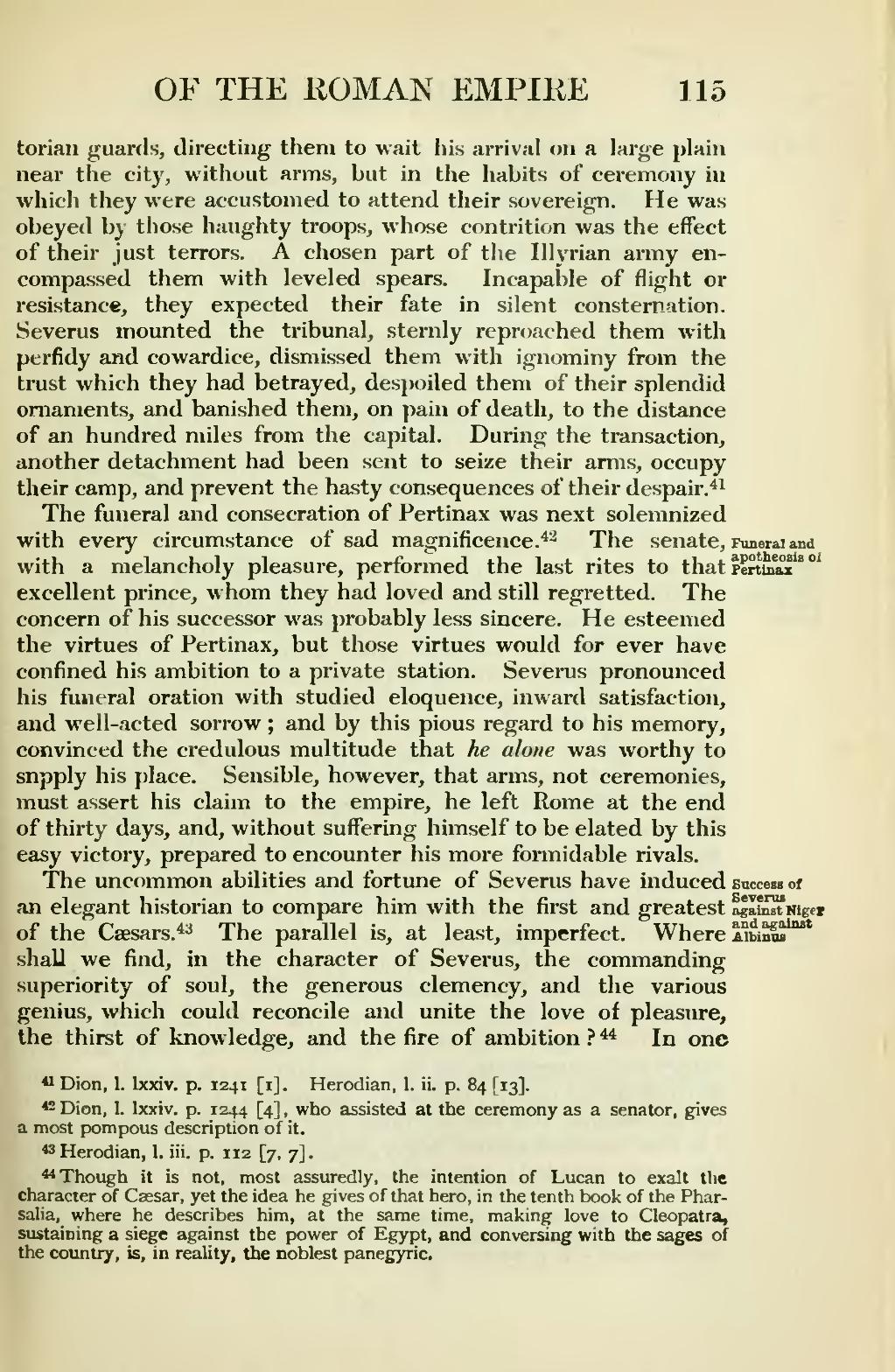torian guards, directing them to wait his arrival on a large plain near the city, without arms, but in the habits of ceremony in which they were accustomed to attend their sovereign. He was obeyed by those haughty troops, whose contrition was the effect of their just terrors. A chosen part of the Illyrian army encompassed them with leveled spears. Incapable of flight or resistance, they expected their fate in silent consternation. Severus mounted the tribunal, sternly reproached them with perfidy and cowardice, dismissed them with ignominy from the trust which they had betrayed, despoiled them of their splendid ornaments, and banished them, on pain of death, to the distance of an hundred miles from the capital. During the transaction, another detachment had been sent to seize their arms, occupy their camp, and prevent the hasty consequences of their despair.[1]
The funeral and consecration of Pertinax was next solemnized Funeral and apotheosis of Pertinax with every circumstance of sad magnificence.[2] The senate, with a melancholy pleasure, performed the last rites to that excellent prince, whom they had loved and still regretted. The concern of his successor was probably less sincere. He esteemed the virtues of Pertinax, but those virtues would for ever have confined his ambition to a private station. Severus pronounced his funeral oration with studied eloquence, inward satisfaction, and well-acted sorrow; and by this pious regard to his memory, convinced the credulous multitude that he alone was worthy to supply his place. Sensible, however, that arms, not ceremonies, must assert his claim to the empire, he left Rome at the end of thirty days, and, without suffering himself to be elated by this easy victory, prepared to encounter his more formidable rivals.
Success of Severus against Niger and against Albinus The uncommon abilities and fortune of Severus have induced an elegant historian to compare him with the first and greatest of the Cæsars.[3] The parallel is, at least, imperfect. Where shall we find, in the character of Severus, the commanding superiority of soul, the generous clemency, and the various genius, which could reconcile and unite the love of pleasure, the thirst of knowledge, and the fire of ambition?[4] In one- ↑ Dion, 1. lxxiv. p. 1241 [1]. Herodian, 1. ii. p. 84 [13].
- ↑ Dion, 1. lxxiv. p. 1244 [4], who assisted at the ceremony as a senator, gives a most pompous description of it.
- ↑ Herodian, 1, iii. p. 112 [7, 7].
- ↑ Though it is not, most assuredly, the intention of Lucan to exalt the character of Cæsar, yet the idea he gives of that hero, in the tenth book of the Pharsalia, where he describes him, at the same time, making love to Cleopatra, sustaining a siege against the power of Egypt, and conversing with the sages of the country, is, in reality, the noblest panegyric.

